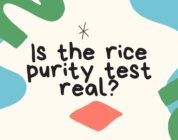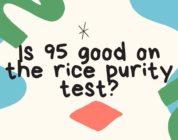The purity test is commonly referred to as the ‘Rice Purity Test.’ It’s a self-graded survey that originated at Rice University, aimed at assessing a person’s participation in a variety of activities, most of which are societal taboos. The test has been widely used for fun among students to compare experiences.
The purity test, also known as the Rice Purity Test, is a self-assessment questionnaire that measures an individual’s level of innocence or “purity” in various areas of life.
The test is often taken by college students as a way to compare experiences with peers and gauge how their own experiences stack up. It is a 100-question test that covers a wide range of topics, including sexual experiences, drug and alcohol use, and criminal behavior.
The questions are designed to be personal and thought-provoking, with the goal of providing a comprehensive snapshot of an individual’s life experiences up to the point of taking the test.
The name “Rice Purity Test” comes from its origins at Rice University in Houston, Texas, where it was first created as a way for students to bond and share their experiences. The test has since become popular on college campuses across the United States and has even been adapted for use in other countries.
The purity test is not scientifically validated and should be taken with a grain of salt. While it can be a fun way to compare experiences with peers, it should not be taken too seriously as a measure of an individual’s worth or value as a person.




